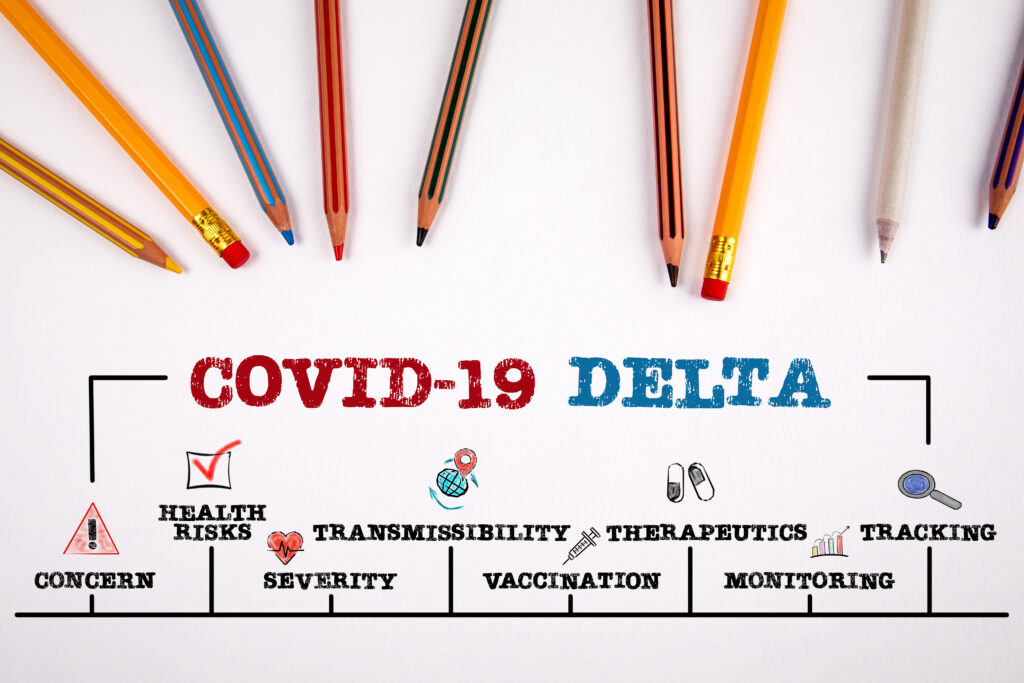COVID- 19 Related
COVID-19 is not over! Get the Facts From Trusted Professionals

The COVID-19 Pandemic is not over
The COVID-19 pandemic is not over. The virus continues to infect, affect our lives, and wreak havoc in our communities. The Delta variant is fueling much of the severe disease and deaths that we are seeing lately. In fact, most deaths at this time, are people infected with the Delta variant. The deaths have primarily been among the unvaccinated. There are currently three COVID-19 vaccines available in the U.S. and they are free. Vaccination saves lives.
COLORADO Black Health Collaborative Cares
The Colorado Black Health Collaborative (CBHC) CARES about the health of our community. We have been out in the community sharing information and listening to the community about this deadly coronavirus and the potentially lifesaving COVID-19 vaccine. CBHC has always been action oriented– armed with information from these informal community listening sessions, we moved to accelerated action. We are stepping up our efforts to get accurate information out to our community.
CBHC will be doing this in a number of ways, including sharing resources from trusted professionals that have our best interest at heart. CBHC will also continue to serve on panels, have ads in local newspapers and radio, as well as other measures. Be on the lookout. WE will be around every corner, nook, and cranny. We won’t quit. CBHC will be in the mix until we have kicked COVID-19’s ___________ (fill in blank).
#BetweenUSAboutUs
Check out the first video in the series entitled, The Conversation Between Us About US, with brother W. Kamau Bell as the host. It features Black Health care providers from across the nation, addressing the COVID-19 vaccine. CBHC hopes this video answers some of your questions. We will be sharing other videos in this series. Stay tuned.
If you have other questions or comments, feel free to reach out to us: info@coloradoblackhealth.org
The Conversation. Between US, About Us. First in the series.
Just for the Health of it!
COVID-19 Vaccine Incentives: Why Free Doughnuts and Cash Drawings are not Addressing the Real Issues of Vaccine Accessibility
By: Joy Emenyonu, Student Intern Colorado Black Health Collaborative
According to research collected by Our World in Data, the state of Colorado has seen over 6.33 million doses of the COVID-19 vaccine administered. This means that just over half of Colorado’s entire population is vaccinated, with more and more people getting vaccinated everyday. Many people who have gotten vaccinated have done so, because of the COVID-19 incentives that appear to be everywhere. It started out with Krispy Kreme offering vaccinated people free donuts, and went as far as the Governor Polis awarding one million dollars to 5 randomly selected people who got vaccinated. The efficacy of this however is questioned because according to an article by the Denver Post, vaccination rates dropped by two thirds after Polis’ announcement.
The misconception surrounding vaccination rates is that many people are not getting vaccinated out of fear or not trusting the science. This may be the case for some, but there is a greater conversation to be had about access. While COVID vaccines are available at many pharmacies, doctor’s offices etc., vaccines can still be inaccessible because of limited location hours, transportation, work availability, and other factors. As quoted in an American Medical Association article by Brenden Murphy, Dr. Freiden, the CEO of Resolve to Save Lives, “We can make a lot of progress by making vaccination more convenient.” Put differently, more people would get vaccinated if it was more readily available. Many people work the same hours that many pharmacies and vaccine distribution centers are open, and considering that millions of Americans are 1 missed paycheck away from homelessness or other financial complications, taking off work to get vaccinated is not a luxury that most can afford. This is especially true for black and brown people, who according to the U.S Census, already have increased rates of poverty and job insecurity.
My dad is a mechanic who works Monday through Saturday from 8am to 6pm, often later. With most pharmacies and vaccine centers near us being closed outside of my dad’s work hours, my dad has not been able to find a time and place to get vaccinated. He had COVID-19 in November of 2020 and it was probably the sickest he has ever been in his life. He has every reason to want to get vaccinated but finding a time for him to do so was difficult.
I myself was able to get vaccinated back in April because my university provided me with a wide variety of times and dates for appointments as well as transportation to and from the vaccine site. Every need that I could have had regarding my ability to get vaccinated was met. I can only imagine how many others would get vaccinated if it was that easy.
What do you think about incentives for people getting the vaccine?
The Delta Variant is Fueling the Latest Wave of COVID-19 Infections
Continue to be vigilant. COVID-19 is still alive and well. The Delta variant is leading the way at this point. Colorado Black Health Collaborative (CBHC) continues to stay abreast of new developments and will share these with the community. Read this article to learn more about the Delta variant.
“The Delta variant is a game changer and this week CDC released data that vaccinated persons can pass COVID to other people just as easily as if they weren’t vaccinated. We need to go back to wearing masks indoors to protect ourselves and others, especially unvaccinated persons.”
Dr. Michelle Haas, Denver Public Health
About the COVID-19 Delta Variant
The Delta variant has spread throughout the world. It is a variant of concern in the U.S., as well. The COVID-19 Delta variant is rapidly expanding, especially in areas where vaccination rates are low.
The Delta variant:
- Originated in India.
- Accounts for 1 in 5 COVID-19 cases in the U.S.
- Spreads more easily (more transmissible).
- Causes more severe disease.
- Results in higher rates of hospitalization and death than any of the other strains.
- Has almost 3 x the risk of hospitalizations.
The Delta Variant is the NEW REASON for us to get Vaccinated!
- Unvaccinated and people who are only partially vaccinated are at greater risk.
- Fully vaccinated folks are protected. The vaccines continue to work very well to prevent moderate to severe COVID-19. They also reduce the chances of getting COVID-19, BUT the Delta variant is much easier to catch and pass around from person to person. This is leading to vaccinated people getting COVID.
- Two doses of the mRNA vaccines are effective against the Delta variant.
- The most important action you can take to prevent the spread of this variant is to get fully vaccinated.
- Vaccinated people can be carriers the Delta variant.
- Vaccinations are still critical to preventing moderate/severe COVID-19 and still work against the Delta variant to prevent severe COVID.
- If you have had your first dose, be sure to get your second dose (applies to Moderna or Pfizer vaccines).
Wear Your Mask
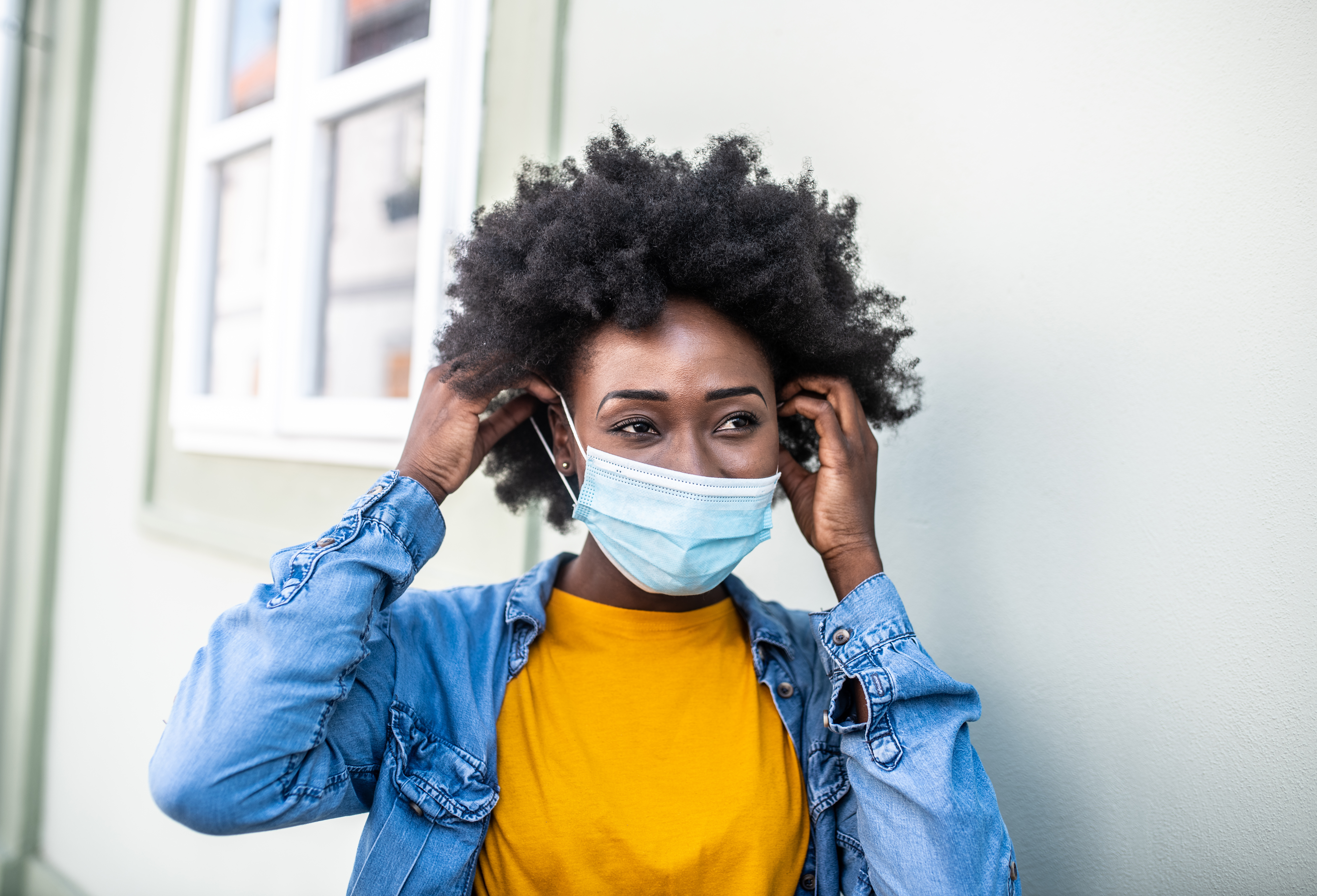
What about masks? Prior to the surging of the Delta variant, fully vaccinated people were told they did not have to wear a mask. However, COVID-19 cases have increased, fueled by the Delta variant, so the recommendations have been updated. Dr. Haas shared with CBHC that we now need to wear masks indoors in public spaces. The CDC recently changed the guidance, Interim Public Health Recommendations for Fully Vaccinated People | CDC.
Of courses masks can’t be worn while eating or drinking. Dr. Haas also feels it would be prudent to limit time eating indoors at a restaurant for the near future and try to choose seating outside or take-out as much as possible.
Be safe, get vaccinated. Do it for the FAMILY!
Colorado Black Health Collaborative Summer Intern Writing About COVID-19
Joy Emenyonu

CBHC is happy to have Joy back for a second summer of volunteering. Our mission is to achieve health equity in Colorado’s Black community and we are always excited to work with students that are interested in this important quest.
Meet Joy in her own Words
Hello! My name is Joy Emenyonu. I am an incoming 4th year at Emory University studying Human Health and African American Studies, and preparing to pursue a masters in Bioethics. In my studies, I focus largely on health disparities, namely ones that make health and healthcare hard to access for Black people.
For the summer, I am interning at Anthem, learning about the strategy and decision making used in creating and distributing health insurance plans. I am also interning with the Colorado Black Health collaborative, writing articles like these about COVID-19 and its impact on the Black community. I hope to use this knowledge to pursue a career as a clinical ethicist, advocating for patients in complex hospital situations. During my time writing for the CBHC, I’m excited to look intently at the relationship that Black people have had historically and socially within the healthcare system. Ultimately, I want to discuss how this is tied to COVID-19 infection rates, vaccine incentives, accessibility of vaccines and other COVID related resources, and other aspects of the pandemic.
Dr. Frita’s Take on COVID-19 Vaccines in the United States
The COVID-19 pandemic began wreaking havoc about 1 year ago in American. Millions of cases and deaths created a emergency need for a vaccine that could help fight of against this deadly virus. All the usual steps were employed to rapidly deploy vaccines. Moderna and Pfizer were the first COVID-19 vaccines authorized. Both of these vaccines require two shots and utilize mRNA technology. The newly authorized Johnson and Johnson vaccine requires only one shot and uses a weakened adenovirus. All vaccines lead to creation of the spike protein which actives the body’s immune system that helps you fight off infection.
Dr. Frita’s video explains the vaccines, explores the data, and offers a perspective on taking the vaccine. Johnson and Johnson COVID-19 Vaccine: Should You Take It? – YouTube
Have you taken the vaccine?
Do plan to get the vaccine?
BCHART Educators are Here to Serve our Community
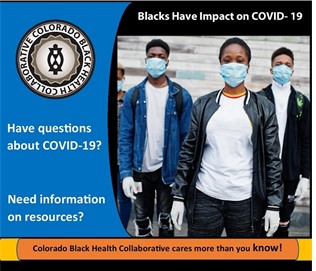
Contact:
Mabel at 720.675.8807
or
Johnny at 720.316.780
The Coronavirus pandemic has left us with so many questions, but the Colorado Black Health Collaborative (CBHC) hopes to provide you with some much-needed answers. We have partnered with Denver Public Health and other community partners to bring the latest information to Colorado’s Black Community. Whether it’s regarding the safety of the vaccine or where someone can see a provider who looks like them, we are here to support. Our two BCHART (Black Community Health Awareness Response Team) have been trained to help you navigate this pandemic. They will direct you where to get the vaccine and or just be someone for you to talk to since the pandemic has affected us all. Please reach out!
COVID-19 fatigue has affected us all! We all remember where we were on March 11th, 2020. Some of us were with our families trying to enjoy the last bit of winter before spring came and then some were watching the latest NBA game. March 11th is a day that will live in infamy for most of us, the last day of “normal” most of us would have for the foreseeable future. For others it was a call for action.
We have a mission at the Colorado Black Health Collaborative to promote health equity in Colorado’s Black community and when we saw that the Black community was only 3% of the population but 7% of the COVID deaths we knew as an organization we had a call to action. The Black community is unique due to the amount of historical trauma we have experienced since the inception of the United States, from the medical knowledge gained from torturing women who were enslaved, to allowing syphilis to go untreated and to even this day getting massacred in cold blood without justice.
Knowing all of these things we decided to use our cultural capital and collaborate with Denver Public Health to address COVID in our way…with the Black Community Health Awareness Response Team or BCHART. BCHART is special because we are able to not only rely on the expertise we have in house to achieve health equity in Colorado’s Black Community but also are able to create new relationships and work on healing past mistrust that has been present between the health system in general.
Our BCHART educators consistently receive the latest, most up to date information related to COVID-19 as well as resources to address the financial burden of COVID-19 as well.
Some of the biggest lessons we have learned as a team are that trusted community partners are necessary to bridge the gap between the health care system and the Black Community. In conjunction with local churches and other trusted organizations we are able to help directly or indirectly get thousands of Black Coloradans vaccinated and dispel a lot of the misinformation surrounding the vaccine. Our BCHART educators have been vital in closing the gap between the ivory tower of research and grassroots efforts. We hope to be able to leverage our strong volunteer corps to continue the push to achieve health equity in Colorado’s Black Community.
Blacks have impact on COVID-19 Johnny Williams, MPH
6 Questions Answered About the COVID-19 Vaccines
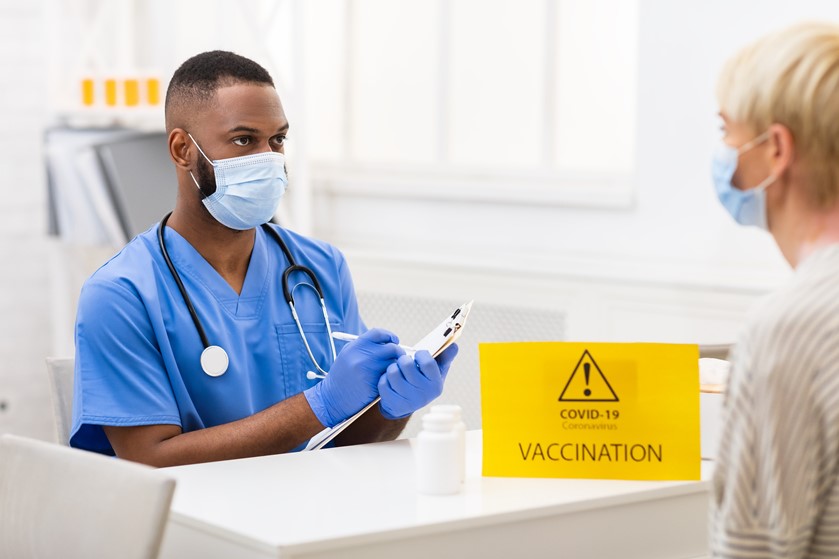
Have a question? Contact us: info@coloradoblackhealth.org
Colorado Black Health Collaborative hears many questions when we are outreaching to the community. We partner with Denver Public Health to stay abreast of the latest COVID-19 developments. These responses are adapted from information provided by Dr. Michelle Haas, as well as Colorado Black Health Collaborative’s research.
- How safe are the vaccines? Very safe. These vaccines have been evaluated in over 56,000 individuals in clinical trials and have now been given to over 71 million people in the U.S. That is like giving everyone in the United Kingdom, France, Thailand or South Africa a vaccine! An early review of serious side effects in 1.8 million people found that only 21 had serious allergic reactions and ALL recovered. (Information as of 3.16.21)
- Do the vaccines contain pork? None of the currently available vaccines contain pork. This vaccine is considered halal by many prominent religious leaders (Imam Quari Muhammad Asim-UK) and considered kosher by the Orthodox Union, US Rabbinic Council. The United Arab Emirates and Israel are leading the world in the percentage of people vaccinated.
- Was this vaccine made with fetal tissue? No. The Vatican has issued a statement stating that taking this vaccine is in alignment with Catholic practices and beliefs. The Johnson and Johnson vaccine did use cell lines derived from fetal tissue over 40 years ago to produce the adenovirus vector only. Cell lines are not considered to be fetal tissue. This is the same construct for the AstroZeneca vaccine which was available when Pope Francis/Vatican issued a statement about taking the COVID vaccines. So, the Vatican was aware of the slight differences in production of these vaccines. The US Conference of Catholic Bishops issued a statement that Catholics should avoid the Johnson and Johnson vaccine because the adenovirus construct was produced in cell lines. This is at odds with the statement from the Vatican.
- Are the vaccines effective in Black people above the age of 70? What about other people of color? Both the Pfizer and Moderna vaccines included people from diverse backgrounds (30% in the Pfizer study and 37% in the Moderna study). They both included older adults with at least 20% of individuals being over the age of 65. When each study evaluated the outcomes of each trial, they did not find any differences by age or race/ethnicity. For the Johnson and Johnson, there was even more representation from people of color: almost 20% of people recruited into the trial identified as Black, overall, 75% identified as being a person of color.
- If I am vaccinated as well as my friends/family, can we be around each other without masks indoors for small gatherings? Yes—with some additional precautions. This is evolving as we get more information in about how effective the vaccines are at preventing us from passing COVID to one another. Here’s the latest. Fully vaccinated people can:
- Visit with other fully vaccinated people indoors without wearing masks or physical distancing
- Visit with unvaccinated people from a single household who are at low risk for severe COVID-19 disease indoors without wearing masks or physical distancing
- Refrain from quarantine and testing following a known exposure if asymptomatic
- Can my employer make it mandatory for me to be vaccinated for COVID-19? Currently the state of Colorado is not pursuing any mandates for COVID-19 vaccination. However, an employer may be able to require that their employees engaging in face to face work be vaccinated with COVID-19 vaccine.
Cardiovascular Disease Related
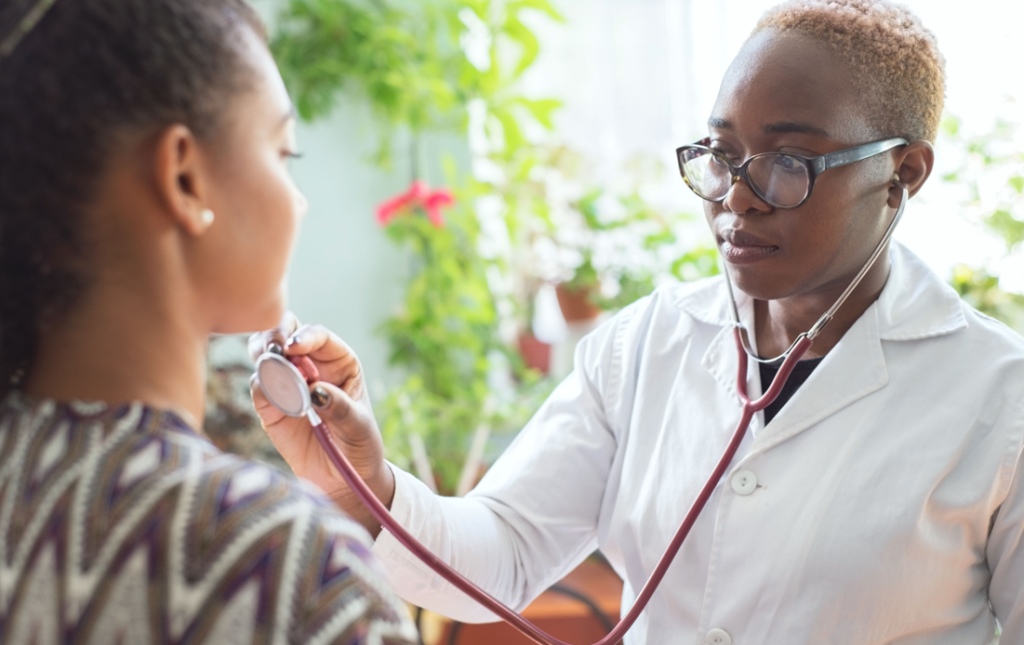
The Surgeon General’s Call to Action to Control Hypertension (Call to Action) seeks to avert the negative health effects of hypertension by identifying evidence-based interventions that can be implemented, adapted, and expanded in diverse settings across the United States.
Nearly half of U.S. adults have hypertension, or high blood pressure, and only about 1 in 4 of those individuals has their hypertension under control.
Hypertension is a major preventable risk factor for heart disease and stroke, which are the first and fifth leading causes of death in the United States, respectively.
The Call to Action outlines three goals to improve hypertension control across the United States, and each goal is supported by strategies to achieve success:
- Goal 1. Make hypertension control a national priority.
- Goal 2. Ensure that the places where people live, learn, work, and play support hypertension control.
- Goal 3. Optimize patient care for hypertension.

